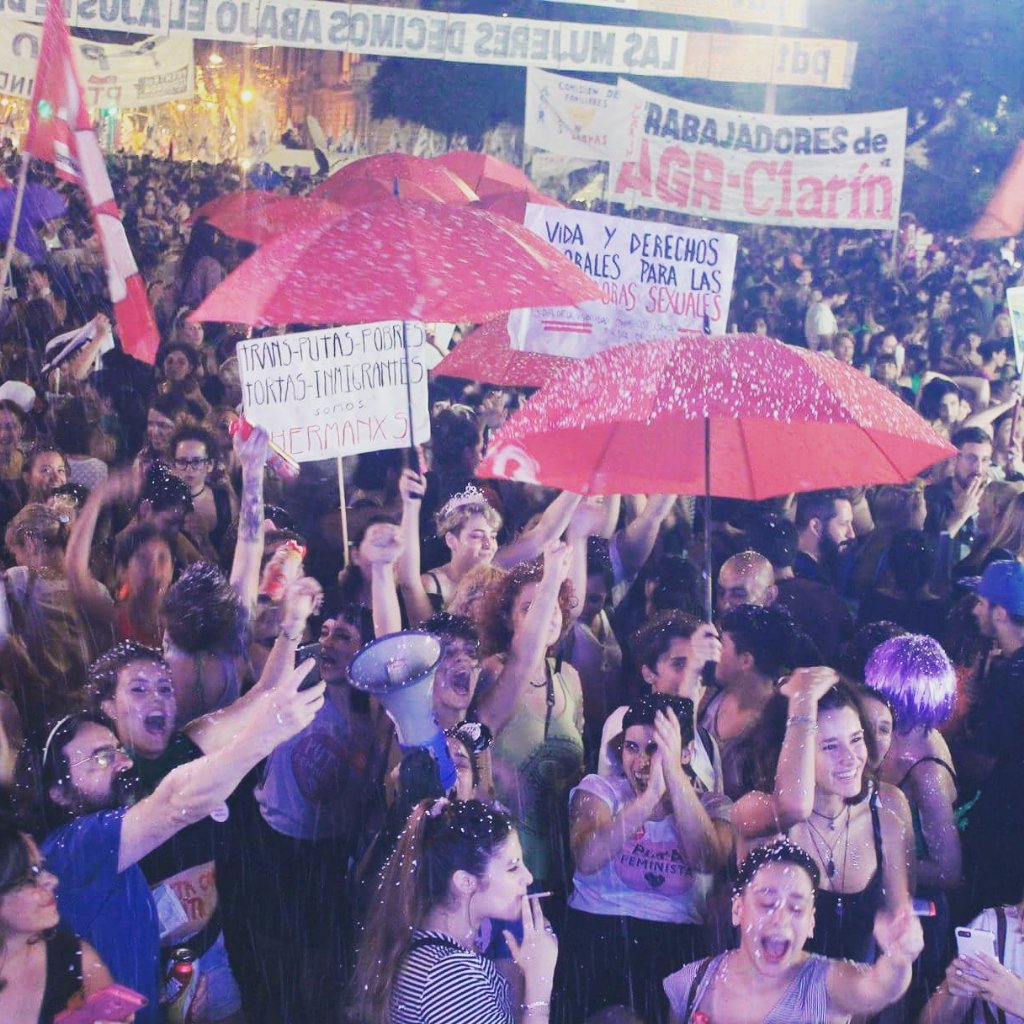A provocative critique of anti-trafficking celebrity spokesman Ashton Kutcher and the rescue industry complex penned by sex trafficking survivor (and Tits and Sass contributor) Laura LeMoon is making the rounds. Predictably, white people are pissed. “Kutcher is just trying to help!” exclaim my white, cishet acquaintances on Facebook, clearly missing LeMoon’s point that “being a… Continue reading White Feminism, White Supremacy, White Sex Workers
I’m Not So Sure About That Rough Night Trailer
By now, you are probably aware of Rough Night and the animated and practiced (if not exhausted and slightly jaded because this happens all the f*cking time) reaction to it from the sex worker online community. But if not, here’s a quick recap: on March 8th Paulilu Productions released the trailer for their latest summer… Continue reading I’m Not So Sure About That Rough Night Trailer
Sex Workers And Scabs: Mixed Feelings After The Women’s Strike
I was a scab on Wednesday during the Women’s Strike. Too broke and disorganized as usual, still messily addicted, I ended up having to see a client. And sure, I wore red, and I limited my shopping to the South Asian woman-owned convenience store down the street, and I tried to allow the organizers’ reassurance… Continue reading Sex Workers And Scabs: Mixed Feelings After The Women’s Strike
Top Six Reasons Melania Trump Should Get Involved In Anti-Trafficking Campaigning
With every new presidency comes the expectation that the First Spouse will adopt a cause that is considered sufficiently non-controversial in nature. So as the doomsday clock ticked ever faster towards the Trump inauguration at the end of 2016, people not only speculated about which nightmarish regressive agendas Donald would make a waking reality while… Continue reading Top Six Reasons Melania Trump Should Get Involved In Anti-Trafficking Campaigning
We’re Not Crazy For Doing This: Sex Workers With Mental Illness
Most people have some form of a lurid narrative about drugs, exploitation, childhood abuse, and mental illness come to mind when they imagine the life of a sex worker. However, sex workers’ relationships to their identity are far more complex and difficult to characterize than that trite narrative allows for. When it comes to sex… Continue reading We’re Not Crazy For Doing This: Sex Workers With Mental Illness




